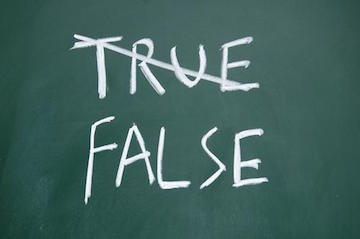 A recent Wine Spectator article written by Emma Balter was headlined, “Wine Lovers Facing Increasing Hurdles Ordering Online.” It was a good update of the challenges wine lovers and wine retailers face merely trying to consummate the simple sale and delivery of wine. And it outlined efforts being made by NAWR and others in combating the ongoing efforts by sectors of the industry promoting anti-competitive laws meant to prevent consumers from accessing the wines they desire.
A recent Wine Spectator article written by Emma Balter was headlined, “Wine Lovers Facing Increasing Hurdles Ordering Online.” It was a good update of the challenges wine lovers and wine retailers face merely trying to consummate the simple sale and delivery of wine. And it outlined efforts being made by NAWR and others in combating the ongoing efforts by sectors of the industry promoting anti-competitive laws meant to prevent consumers from accessing the wines they desire.
As with most articles of this type, the author reached out to the organizations pushing the anti-competitive agenda that stifles consumer access to wine. Normally, NAWR prefers to let wholesalers’ justification for protectionist laws speak for themselves. But in the case of the recent Wine Spectator article, we felt it necessary to post a response, if only to correct a number of outlandish and thoroughly false statements and claims.
In the article, Balter reached out to Craig Wolf, soon-to-retire president and CEO of the Wine & Spirit Wholesalers of America (WSWA). WSWA has been the primary opponent of consumer access to wine and wine shipping for three decades. In response to Balter’s questions Wolf made a number of outlandish claims about wine retailer shipping that need correcting for the record.
” [With wine retailer shipping] there is no way to control whether or not products are safe, and not counterfeit”— Craig Wolf
Wolf fails to note that the exact safeguards that protect consumers from unsafe products and counterfeit wine when purchased face to face at a brick and mortar wine store apply to online sales of wine and wine shipping. He also fails to note that unsafe products are largely absent from the American marketplace due in large part to the variety of affordable choices. Moreover, wine retailers procure their inventory almost exclusively from wholesalers in the state where they reside. So, if there is any problem with unsafe or counterfeit products, the problem starts with wholesalers.
“There is no way to control that underage people are not getting their hands on alcohol.” — Craig Wolf
Wolf and wholesalers have attempted to use the fear of minors obtaining alcohol via direct shipment for decades. The fear has never been borne out by reality. The fact is, no member of law enforcement or the alcohol regulatory community anywhere in the United States has ever described minor access to alcohol via direct shipment as being a problem in their community. None. No one. The claim is a scare tactic. Wolf knows that by an overwhelming margin minors obtain their alcohol from inside the home where they live or from older peers.
“There is no way to control whether taxes are being paid.” — Craig Wolf
The absurdity of this false claim can’t be overstated. The fact is there are numerous ways to control whether retailers remit sales tax on sales of wines to consumers in other states. You do it the same way you control whether wholesalers are remitting taxes they are required to send to the state. You audit. Another way is to simply review records submitted to states by retailers and common carriers to see if the taxes paid by retailers to states match up with the wine common carriers have carried into the state for a wine retailer. The real fact is that by issuing permits to out-of-state wine retailers allowing them to ship into a state is one of the easiest and simplest ways for states to accumulate additional tax revenue.
“States that have allowed out-of-state retailer shipping…They’re losing local tax revenue, they’re losing local jobs, and there’s no way to account for the product.” — Craig Wolf
This is nothing more than a simple lie and it provokes one to wonder, why would the head of a prestigious national trade association make a claim that is so easily disputed. The only way states can actually collect MORE tax revenue and DO collect additional tax revenue from the direct shipment of wine is by issuing permits and licenses to out-of-state retailers allowing them to ship wine to consumers in the state and requiring the remittance of sales tax by the retailer. Without this kind of nexus between the state and the retailer the state has no taxing jurisdiction over the out-of-state retailer. Moreover, those states that have issued permits to out-of-state retailers have seen a rise in tax revenues. Furthermore, Mr. Wolf cannot name a single state where local wine retail jobs or wholesaler jobs or jobs of any other type have been lost as a result of consumers receiving shipments from out-of-state wine stores. In fact, if this were even remotely true, Mr. Wolf would have named those states.
This conflagration of false claims suggests that either the soon-to-retire Mr. Wolf is off his game and in a particularly dotty state of mind or that he has no legitimate justification for his organization’s and wine wholesalers’ continued opposition to consumers obtaining the wines they want.
In the end, none of the arguments offered by Mr. Wolf are legitimate, due primarily to the fact that they are premised on demonstrably incorrect claims. NAWR believes there is only one authentic and honest argument opponents of interstate retailer wine shipments can make: The interests of a states consumers and the benefits of free trade and competition are less important than protecting a small group of well heeled special interests from legitimate competiton.